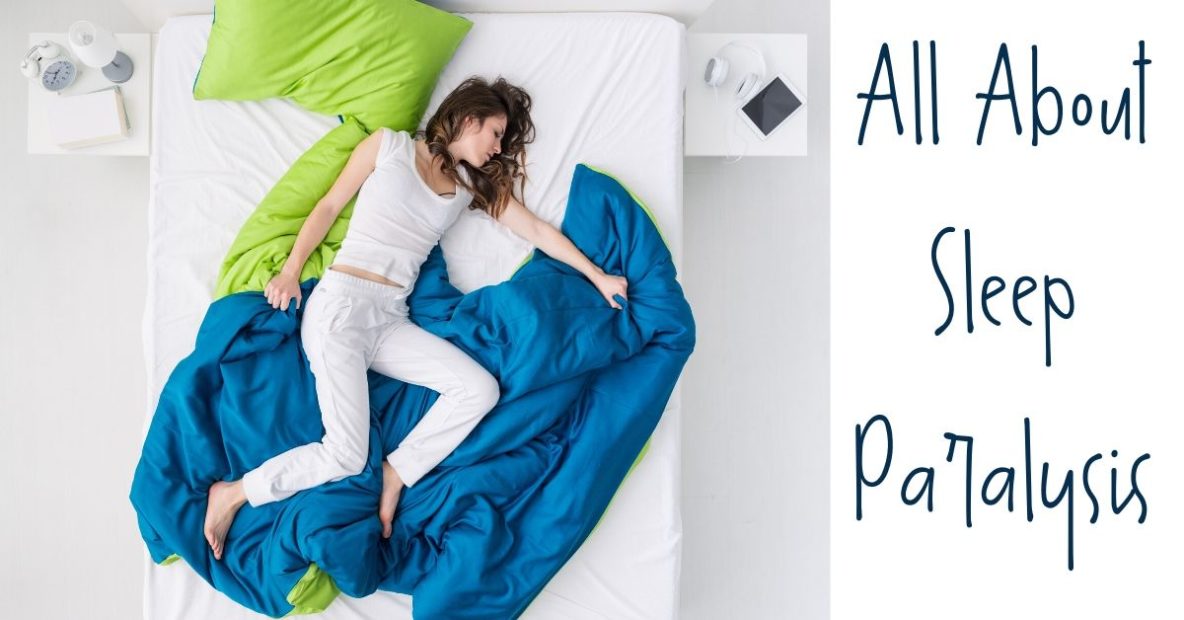All About Sleep Paralysis

- A Promising Paradigm Shift: New Research Challenges the CPAP-First Approach to OSA Treatment - September 5, 2023
- Understanding Sleep Meditation Techniques - July 30, 2021
- How Online Learning Has Affected Sleep for Students - July 13, 2021
Have you ever woken up and been unable to move? This scary experience is called sleep paralysis. Some people never experience sleep paralysis, or have only had sleep paralysis once or twice in their lives. For others, sleep paralysis can occur often. Read on to learn all about sleep paralysis.
What is Sleep Paralysis?
If you’ve ever woken up and not been able to move, or been unable to move when you’re drifting off to sleep, you’ve experienced sleep paralysis. During sleep paralysis, you can’t move your body at all, but your mind is conscious and awake. Hallucinations are also common during sleep paralysis, and you may see or hear things that aren’t there. Many people also report the feeling of choking, struggling to breathe, or feeling a heavy weight on their chest. Sleep paralysis can be a frightening experience, and make it difficult to get a good night’s sleep.
What Causes Sleep Paralysis?
Learning all about sleep paralysis can make it less frightening and stressful, and lower your risk of having sleep paralysis. During sleep, your body is very relaxed, and stops responding to signals from your brain. This is actually a good thing, because it keeps you in your bed during dreams, and prevents you from acting out what’s happening in your brain during sleep. It also stops you from thrashing around during the night, or hurting yourself during sleep.
Sleep paralysis occurs when your body has already relaxed and stopped responding to your brain, but you are still awake. This can be when you’re just drifting off to sleep, or when you wake up in the middle of the night or in the morning. Your conscious mind realizes it’s not in control of your body, and can’t make the body move or call out for help. During sleep paralysis it’s common to feel panicked, hyperventilate, and even hallucinate or see things that aren’t there.
While the moments you’re in sleep paralysis can seem never-ending, most sleep paralysis usually lasts just a few seconds.
Who Experiences Sleep Paralysis
Sleep paralysis can happen to anyone, but it’s more common among teens and young adults. People with mental health issues have a higher risk for sleep paralysis, and high stress levels, anxiety, depression, and PTSD can increase the chances of experiencing sleep paralysis.
Sleep paralysis can also be a comorbid condition. People with narcolepsy, or extreme drowsiness, are more likely to have sleep paralysis.
If you’ve been struggling to get enough sleep or feel sleep deprived, you also have a higher risk of sleep paralysis. Individuals with changing sleep schedules, such as people switching between night shifts and day shifts, are also more likely to experience sleep paralysis.
How to Prevent Sleep Paralysis
When it comes to preventing sleep paralysis, there are no medications normally prescribed. Instead, preventing sleep paralysis will come down to things you do throughout your day and as you prepare for sleep.
If you’ve been experiencing changes in your mental health, talk to your doctor, or seek mental health support. Learning more about your anxiety, depression, or other mood issues can help you get the sleep you need, and prevent sleep paralysis. When you do experience sleep paralysis, remember that it’s not dangerous, and that the things you’re seeing aren’t really there.
Another way to prevent sleep paralysis is by sleeping on your side or stomach. Sleep paralysis is more common when sleeping on your back, so avoid that position. You can sleep with a pillow behind your back to stop you from rolling over in the night. When you experience sleep paralysis, either when you fall asleep or when you wake up, try to remind yourself that sleep paralysis isn’t dangerous, and that it will be over in just a few seconds.
It’s important that you get enough sleep every night, since sleep paralysis is more common among people who aren’t sleeping 7 to 9 hours per night. To sleep better, develop a sleep schedule that works for you, and stick with it. Try to get up and go to sleep at the same time every day. Make sure your room is dark, and turn down the temperature in your room before going to bed. For more ways to sleep better and prevent sleep paralysis, visit us at Sound Sleep Medical.
